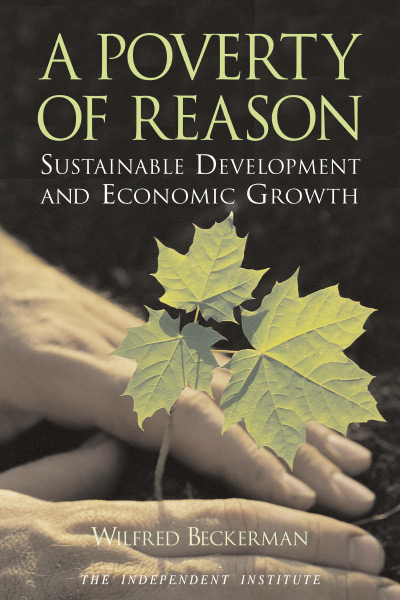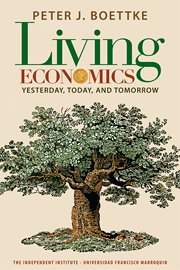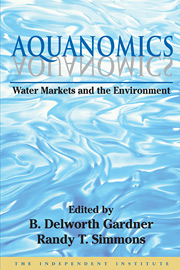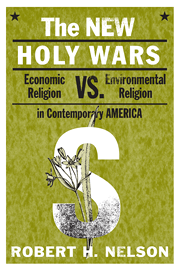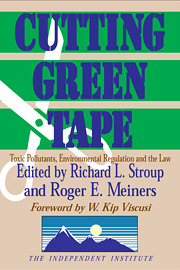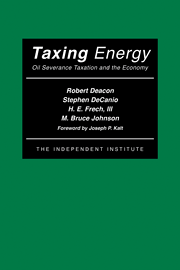| Formats |
Paperback |
eBook |
| Formats |
Paperback |
eBook |
Overview
Environmental activists, politicians and celebrities have touted the wisdom of “sustainable development” as though its meaning and value were clear. But the concept has barely been defined, let alone subjected to scientific, economic, and philosophical scrutiny.
Oxford University economist Wilfred Beckerman puts “sustainable development” to the test, questioning several of its core claims: Will economic growth burn itself out by depleting the natural resources it requires? Will global warming wreak widespread havoc? Does human activity threaten to throw a delicate planet dangerously “out of balance”? Do future generations possess rights that morally override the claims of those alive today? At what price?
After examining the evidence, Beckerman finds “sustainable development” lacking on both scientific and moral grounds. Although millions of people lack clean air and water, and are plagued by deteriorating ecosystems, these problems are caused not by “unsustainable development” but by poverty, poorly defined property rights, and lack of freedom of opportunity. And, Beckerman concludes, because “sustainable development” recommends policies that would worsen these conditions (for present and future generations), it hardly occupies the moral high ground, as its supporters claim.
A Poverty of Reason provides a critical examination of this highly controversial topic and will prove essential in the ongoing debate about environmental and economic practices.
Contents
-
Chapter 1. What is Sustainable Development Supposed to Mean?
Chapter 2. Finite Resources and the Prospects for Economic Growth
Chapter 3. Energy and Biodiversity
Chapter 4. The Climate Change
Chapter 5. The Precautionary Principle
Chapter 6. Bureaucracy and Protectionism
Chapter 7. The “Ethics” of Sustainable Development
Detailed Summary
- Because the concept of “sustainable development” is muddled and incoherent, attempts to measure it are unscientific and wasteful (chap. 1).
- Despite having used up all, or more than all, of the 1970 estimated reserves of the world’s major minerals, over the following 30 years the world uncovered even more reserves than ever (p. 12).
- The market-based price mechanism and technical innovation will ensure that world economic growth will never be hampered by shortages of mineral resources (pp. 12-13).
- World per capita food consumption has risen for the last four decades and food prices have steadily declined in real terms. The widespread assertion that this has been achieved at the cost of massive soil erosion, thereby accumulating problems for the future, is totally unfounded (p. 14).
- Conservative assumptions about future long-run rates of productivity growth and technological progress suggest that average world per capita (real) incomes at the end of this century are likely to be about four times that of today.
- Even if there is no further increase in the efficiency of energy use, current total fossil fuel reserves amount to about 700 times the world’s total annual consumption (p. 22).
- Loss of biodiversity is exaggerated. Best estimates show that, at current rates of extinction, in 20 years about 1% of species might become extinct, not the 25% or more many alarmists claim (pp. 25-26).
- Though one cannot yet say what the effects of climate change will be, the latest estimates by the IPCC suggest that, for the world as a whole, the harmful effects over the next 50 years or more will barely—if at all—offset the benefits. Other detailed estimates suggest that the overall net impact will be a cut in average world per capita income of only about 1-2% from what it would otherwise be (pp. 31-32).
- The main threat to world health is the persistence of poverty, not climate change (pp. 33-34, 37-38).
- The “precautionary principle” boils down to an injunction to take action now when it is very expensive, when it is unlikely to be necessary, and when it will further impoverish the very poor now to benefit the more affluent in the distant future (p. 47).
- “Sustainable development” is widely used to defend greater bureaucratic intervention, regulation and cartelization of markets, and protectionist trade policies (chap. 6).
- The pretense by some environmental groups to occupy a moral high ground is unfounded. Because future generations do not yet exist, they have no rights that trump the rights of the living. Though the interests of future generations should be accounted for, their interests must be weighed against the interests of poor people today. Most of the policies that “sustainable-development” pressure groups advocate work against the interests of the Third World’s poorest citizens (chap. 7).
- Though there may be a need for policies, such as tradable carbon emission policies, to remedy environmental degradation, the most important contribution that can be made to human welfare is an extension of human rights and democratic liberties. The only development that is truly sustainable is development accompanied by greater respect for basic human rights throughout the world (chap. 7).
In recent years, the concept of “sustainable development” has promoted a great expansion of bureaucratic activity at the regional, national and international level. The sustainable-development movement claims to support environmental and human well-being, but A Poverty of Reason: Sustainable Development and Economic Growth, by Wilfred Beckerman, shows this is not the case. Support for sustainable development is based on confusion about its ethical implications and on a flagrant disregard of the relevant factual evidence.
More Questions Than Answers
What exactly is “sustainable development” and what does it require? The answer is by no means obvious. One international organization defines it as “development that meets the needs of the present without compromising the ability of future generations to meet their own needs.” But this formulation, like others, raises many unanswered questions. How does one select from among competing needs and trade-offs? Must the survival of every species of flora and fauna be protected at any cost because of their potential medicinal or aesthetic value to future generations? And if slowing down development to some “sustainable” rate would harm those who live on the brink of starvation or in poverty, would “sustainable development” continue to rank the alleged claims of future generations above those of the living? Establishing consistent policies of sustainable development is impossible because the concept itself is confused.
Finite Resources and Economic Growth
One core tenet of sustainable development is that populations will exhaust natural resources and face economic ruin unless government takes steps to curb consumption. Yes, resources are finite; but the prediction of inevitable disaster is a non sequitur. In fact, the inference logically implies that human activity will exhaust all natural resources even if we reduce our rate of consumption. The claim also runs counter to experience.
Predictions of humankind’s imminent demise due to resource depletion, whether made in The Limits to Growth (1972), by Thomas Malthus in the 18th century, or by Pericles in ancient Greece, failed to materialize because economic progress has led to ever-improving methods of resource extraction, recycling and technological substitution. The fact that natural resources are finite, therefore, is not particularly worrisome—provided that the economic processes that foster scientific, technological, and organizational progress are allowed to operate.
Nor does humankind face a global food shortage. “Of course, there are still major pockets of hunger in some parts of the world, notably in Africa,” Beckerman writes. “But these are far more the result of political condition than any technological limitations on the potential to supply food for the inhabitants.”
Energy and Biodiversity
Many people compare fossil-fuel reserves to current rates of energy consumption and infer that humankind will soon run out of energy sources. Such comparisons are misleading, however, because reserves estimates are a function of energy demand and prices. As energy demand has increased, profit-seeking energy companies have discovered new fuel sources and extraction methods, and have thereby increased known reserves estimates.
Among the newer environmental concerns is the loss of biodiversity, especially in the species-rich tropics. Will rampant deforestation mean the loss of tropical plants with significant medicinal value? A survey by serious experts demonstrates that the usual estimates of species-extinction bandied about by many alarmists are probably about ten times greater than can be justified. Further, the gains of preserving biodiversity may be overrated. From 1960 to 1982, the U.S. Department of Agriculture and the National Cancer Institute studied 12,000 plant species and found only three with significant medicinal properties.
Government subsidies and a failure to enforce property rights have led to excessive deforestation in some countries, and the social value of research into the potential medicinal value of tropical plants may exceed the private return to pharmaceutical companies, but these are not economic development problems per se.
Climate Change
Sustainable development advocates draw support from worries about possible global warming. The expert consensus is that, in the absence of special policies to prevent it, by the end of this century climate change will have reduced per capita income about 2 percent below what it otherwise would have been.
Most writing on climate change has focused on scientific issues or the specifics of the Kyoto Accord, but other issues are also relevant. Would the damage caused by global warming on balance exceed the cost of limiting or preventing it? Would the international distribution of the costs and benefits of drastically reducing carbon emissions be accepted as reasonably equitable? Given that the world will be about four times richer than today, the people alive in 2100 will much better be able to afford to help poorer regions that may suffer any ill-effects of global warming.
The Precautionary Principle
What policies should be adopted in the face of scientific uncertainty about various technologies? Many environmentalists invoke the “precautionary principle,” which holds that without “full scientific certainty” about the effects of some new development, every cost-effective measure should be taken to reduce any imaginable risk that innovations may entail. The principle sounds prudent but suffers on close inspection.
Perhaps the precautionary principle’s biggest shortcoming is that if society must wait for “full scientific certainty,” it would forfeit many scientific advancements that improve the quality of life. For example, if vaccines and antibiotics had not been developed for fear of possible health risks, people would be much less healthy today. If we had followed the principle in the 1960s when an ice age was predicted, we would be less wealthy today (due to the large opportunity costs of trying to prevent the non-threat).
Worse, the precautionary principle is helping to keep disease-resistant, genetically modified (GM) crops out of developing countries. These countries spend resources on restricting research on GM crops, leaving fewer resources available to combat known threats to human life, such as malaria, poor sanitation, and contaminated water supplies.
“Consumers in rich countries,” writes Beckerman, “may not suffer all that much if they are denied the benefits that GM crops bring to them in the way of cheaper foods, but in poor countries the consequences will be unnecessary hunger, disease, and death.”
Sustaining Bureaucracies
Government bureaucracies have mushroomed under the sustainable-development drive, but market mechanisms—not bureaucratic regulations—hold the best promise for reducing pollution and conserving wildlife. Pollution taxes, tradable permits, and stricter protection of private-property rights, result in more efficient utilization of resources than do command-and-control type regulations.
Property rights also create incentives to preserve wildlife. “In most cases it is by no means technically impossible to confer property rights or some economic stake in the conservation of the resource in question,” writes Beckerman. “For example, in South Africa, Botswana, and Zimbabwe, where the local people have been given a stake in the economic value of elephants—for tourism or for sale of the tusks—the incentive to protect and conserve or to increase elephant stocks appears to have been very effective.”
In contrast, the international ivory-trade ban “has merely encouraged poachers to make profits out of illegal trade, as has been the case in many African countries.” Sustainable development policies have also been invoked to support protectionist measures that disproportionately harm those living in the poorest countries.
Sustainable “Ethics”
Sustainable development advocates claim to represent the moral high ground because they place more emphasis on intergenerational equity than do conventional economic principles. In reality, ongoing economic growth raises a serious moral challenge to sustainable growth.
“Before asking present generations—including the poorer members—to make sacrifices in the interests of future generations,” writes Beckerman, “one should take account of the strong likelihood that the latter will be far richer than the former. No moral credit can be earned by redistributing from the poor to the rich.”
Beckerman also identifies the most important legacy can that be left for the future. “The greatest contribution that we can make to the welfare of future generations,” Beckerman argues, “is to bequeath a free and democratic society. And the best means of bequeathing such a society to future generations is to improve respect for human rights and democratic values today.
“Because these rights are currently violated in most countries of the world, bequeathing a more decent and just society to future generations in no way conflicts with the interests of people alive today. There is no conflict between generations, therefore, with respect to the most important contribution that can be made to human welfare, and hence no trade-off is necessary between the interests of the present generation and the interests of future generations.”
Praise
“I have always been uneasy about the philosophical and scientific underpinnings of ‘sustainable development.’ With A Poverty of Reason, we now have an excellent book which carefully examines these concerns and which can be used to seriously debate the concept.”
—Donald H. Stedman, Phillipson-Brainerd Professor of Chemistry, University of Denver
“Beckerman, an Oxford economist, takes on three phrases frequently invoked in debates over environmental policy: ‘sustainable development,’ ‘the precautionary principle,’ and ‘intergenerational equity.’ He demonstrates that each is highly problematic—and that some interpretations of them could have detrimental effects on the world’s poor and on future generations. Beckerman finds clear thinking and clear expression deficient in most public debate (even among those who know better), and his discussion of climate change and biodiversity has resonance well beyond those two illustrations. . . . Serious debate about current actions (on inactions) with long-term effects must take into account Beckerman’s cogent arguments.”
—Foreign Affairs
“In A Poverty of Reason, Wilfred Beckerman brings wisdom and wit to his examination of major themes found in today’s environmental policy. With his economist’s scalpel, he cuts to the core of high sounding words and phrases such as ‘sustainable development’ and finds hopeless contradiction. Not much for slogans, Beckerman goes far beyond the usual in developing recommendations for environmental policy. In his view, governments that seek to provide ‘greener pastures’ must emphasize economic growth and enhanced protection of human rights and liberty.”
—Bruce Yandle, Alumni Distinguished Professor of Economics, Clemson University
“Wilfred Beckerman, an Oxford University Emeritus Fellow in Economics, disputes global climate change concerns and the need for sustainable development. . . . The author poses the following questions: What exactly is ‘sustainable development’ and what does it require? The answer is by no means obvious. How does one select from among competing needs and trade-offs? . . . [I]n Beckerman’s view, the application of the precautionary principle, ‘one of the basic principles of sustainable development,’ is not economically justified.”
—Natural Resources and & Environment
“Sustainable development has become a shield for numerous special-interest arguments in the policy arena. In A Poverty of Reason, Beckerman has provides an important, well-reasoned, and careful critique, pointing out both the crucial ethical and economic shortcomings of the arguments.”
—P.J. Hill, George F. Bennett Chair of Economics, Wheaton College
“Beckerman’s book, A Poverty of Reason, sparkles with provocative claims and vigorous insights. Advocates of ‘sustainable development’ are unlikely to be convinced by all of Beckerman’s claims; but they will learn a great deal from him, and refine their own views in the process. Beckerman is obviously concerned with the prospects of the poorest people in the poorest nations—and in that light, his doubts about some popular environmental proposals have special credibility. Highly recommended.”
—Cass R. Sunstein, Karl N. Llewellyn Distinguished Service Professor, Law School and Department of Political Science, University of Chicago
“There is no gainsaying the fact that in contemporary times, ‘sustainable development’ has become one of the most bandied about and at the same time one of the least clearly understood concepts. Given this state of affairs, it makes perfect sense to ask what the notion of sustainable development actually means. This is, in fact, the central question that A Poverty of Reason book asks. . . . very good . . . the author does a good job of analyzing the issues and, in the process, he debunks some of the more extreme contentions of environ- mentalists. . . . I would recommend this book to readers who wish to learn more about whether it is right to ask (some very poor) members of the present generation to make sacrifices for future generations who obviously do not exist at the present and who, according to the author, have no rights.”
—Journal of Range Management
“Wilfred Beckerman shows brilliantly in A Poverty of Reason that ‘sustainable development’ is a confused jumble of ideas that is capable nevertheless of doing much policy harm in the real world. Anyone who believes that ‘sustainable development’ is a meaningful intellectual construct needs to read this clear and concise book.”
—Robert Nelson, Professor of Public Affairs, University of Maryland
“Sometimes people claim the free market is unfair to future generations. . . . A Poverty of Reason: Sustainable Development and Economic Growth, the economist Wilfred Beckerman had some insightful comments on this issue. According to those who criticize the market, people care about their children and grandchildren but will rarely seek to conserve their resources beyond what is needed to provide for them. . . . Beckerman’s main objection to the ‘future generations’ argument is this: Suppose we grant that the present generation shouldn’t squander all its resources and leave nothing for distant future generations. It doesn’t follow that these future generations have an enforceable right that resources be conserved at a certain rate. To introduce the language of rights, Beckerman says, is to assume without basis that whatever moral claims future generations have on the present bind us absolutely, or close to it. . . . Finally, I’d like to mention one more of Beckerman’s arguments. Many environmentalists are well aware of the fact that their predictions of disaster are controversial. But they claim to have an argument that their pessimistic views should still guide policy. . . . Beckerman points out that the principle of avoiding disaster can be carried too far. We should indeed be cautious, but the benefits of economic development should never be ignored. The precautionary principle ‘is just a pompous way of saying that one should consider the case for making some investments now in order to minimize the danger of some unpleasant event taking place later. But nobody in their senses would make investments to avoid every remote possibility since that would leave precious little time for the enjoyment of life.’”
—Mises Wire
Author
Wilfred Beckerman is an Emeritus Fellow of Balliol College at Oxford University. Dr. Beckerman is an economist and the author of many academic articles and several books including In Defence of Economic Growth, Small is Stupid and most recently Justice, Posterity and the Environment (with J. Pasek). Dr. Beckerman has served on Britain’s Royal Commission on Environmental Pollution, and chaired the Academic Panel of Economists for the UK Department of the Environment from 1991 to 1996.
News
| “What Rights Do Future Generations Have?” A Poverty of Reason by Wilfred Beckerman reviewed on Mises.org | Mon., Feb. 1, 2021 |

